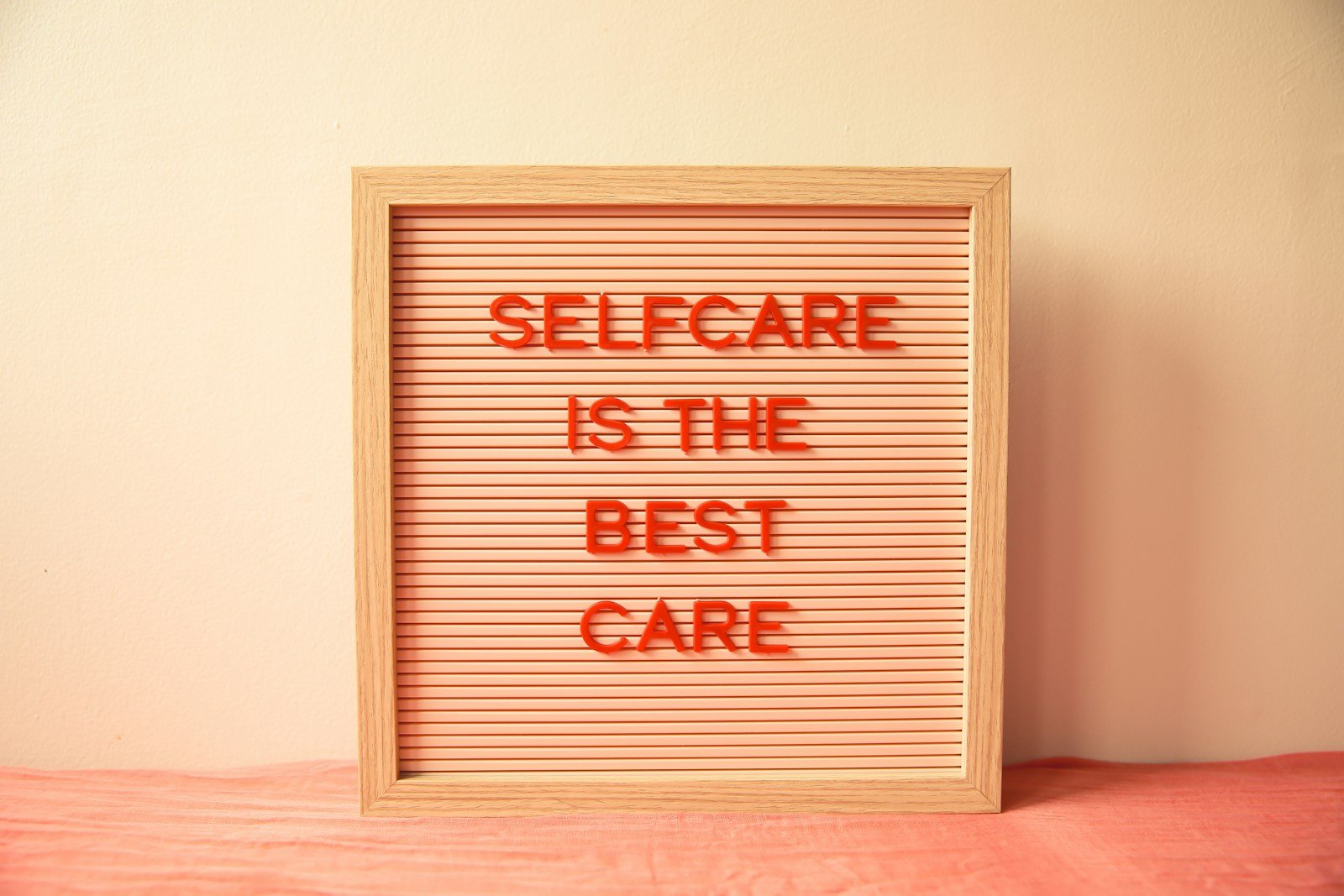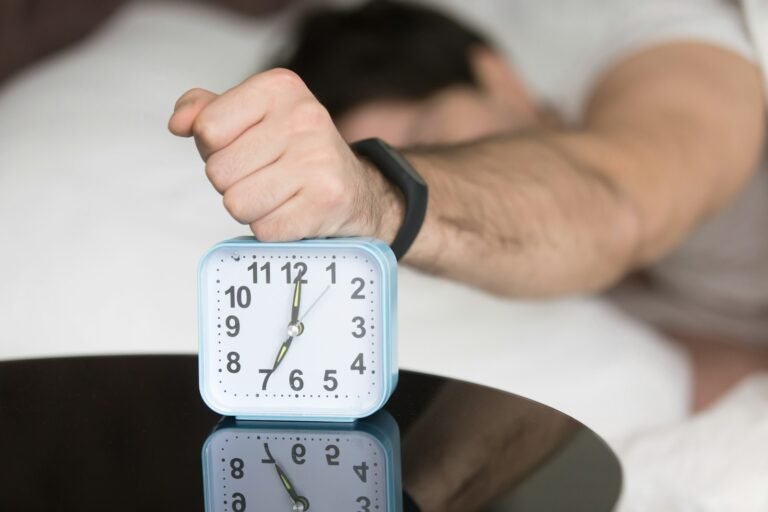How to Develop a Self-Care Routine That Works
This post will guide you through the vital steps to create a self-care routine tailored specifically to your needs. I’ll share techniques that have helped me, along with insights into how you can prioritize your mental and physical well-being. By understanding your unique preferences and challenges, you can develop a routine that not only nurtures you but also fits seamlessly into your life. Let’s explore how to make self-care an integral part of your daily schedule.
Key Takeaways:
- Identify your personal needs and preferences to tailor a self-care routine that resonates with you.
- Incorporate a variety of activities that address emotional, physical, and mental well-being.
- Establish a consistent schedule, allowing time for self-care in your daily or weekly routine.
- Be flexible and open to adjusting your routine as your needs and circumstances change.
- Monitor your progress and reflect on how your self-care practices impact your overall quality of life.
Uncovering Your Unique Needs
Identifying Physical, Emotional, and Mental Signals
Throughout my journey in establishing a self-care routine, I learned to pay close attention to the signals my body sends me. Physical symptoms like fatigue, headaches, and muscle tension often serve as red flags that my body is in need of a break. For instance, I found that after a notably stressful week at work, I would often experience tightness in my shoulders and neck. Acknowledging these physical cues prompted me to incorporate more stretching and relaxation exercises into my routine, which provided much-needed relief. You might also experience emotional signals, such as irritability or sadness, when you neglect your self-care. Recognizing these feelings can help you pinpoint activities that rejuvenate your spirit, like engaging in creative pursuits or spending time with loved ones.
Reflecting on Past Self-Care Efforts for Improvement
Looking back on my previous attempts at self-care has been invaluable in shaping my current routine. Some methods worked well, while others fell flat. For instance, I once tried daily meditation but found it overwhelming rather than calming. Upon reflection, I realized that shorter, more mindful moments throughout the day worked better for me. By examining my past efforts, I can identify what truly nourishes my well-being and discard the methods that lead to frustration. This honest evaluation allows for ongoing refinement of my self-care practices, ensuring they remain effective and enjoyable.
In examining my past self-care efforts, I documented what activities I engaged in, how I felt afterward, and how long I maintained those practices. This approach provided insights into my preferences and aversions. For example, taking long walks in nature consistently left me feeling invigorated, while hours spent at crowded social gatherings drained my energy. The more I honed in on what worked and what didn’t, the more tailored my routine became, ultimately leading to a deeper sense of fulfillment. You might find it useful to maintain a self-care journal as you navigate this process, making it easier to track patterns and refine your regimen over time.
The Science of Self-Care: What Research Tells Us
The Psychological Benefits of Regular Self-Care
Delving into self-care reveals fascinating insights supported by research. Studies indicate that engaging in regular self-care activities can lead to decreased levels of anxiety and depression. For example, a meta-analysis published in the journal ‘Health Psychology’ found that participants who practiced self-care showed a 30% decrease in symptoms associated with anxiety disorders. Personally, I’ve observed significant shifts in my mood and overall outlook when I allocate time for activities that nurture my mental well-being, such as journaling or mindfulness meditation.
Additionally, self-care appears to enhance resilience against stress. The Journal of Health Psychology published research demonstrating that individuals who regularly engage in self-care activities are more equipped to cope with life’s challenges. I’ve come to appreciate that simply taking a walk or spending time in nature can dramatically alter my perspective, promoting calmness and clarity during turbulent times. This is not mere coincidence; it’s a testament to how intentional self-care can cultivate more positive emotions.
Understanding the Role of Routine and Consistency
Establishing a self-care routine thrives on the principles of routine and consistency. Research suggests that predictable actions create a sense of control, which is especially comforting when faced with life’s unpredictabilities. In my experience, setting a specific time each day, such as dedicating my mornings to reading or practicing yoga, instills a sense of commitment and ensures that I prioritize self-care amidst various responsibilities. The National Center for Complementary and Integrative Health stresses that consistent practices can amplify the benefits of self-care, transforming them into lasting habits that enhance overall well-being.
A routine isn’t just about filling time; it’s about creating rhythms in our lives that promote balance. When I consistently engage in self-care activities, I’ve noticed they become integral to my daily routine, reducing the mental friction associated with scheduling time for myself. In fact, scholars at the University of Exeter emphasize that the brain thrives on patterns. Thus, integrating self-care into a daily routine can lead to more profound, long-term effects, solidifying habits that nourish both the mind and body.
Crafting Your Tailored Self-Care Blueprint
Establishing Goals for Your Self-Care Journey
Setting clear and attainable goals is the cornerstone of any self-care routine. I find it helpful to start by reflecting on the areas in my life that feel unbalanced or stressful. Specific goals might include dedicating at least 30 minutes a day to exercise, committing to a weekly mindfulness practice, or ensuring I spend quality time with friends and family. By identifying what truly matters to me, I can create milestones that align with my vision of well-being. Goals should not feel like burdens but rather empower me to embrace the journey of self-discovery and healing.
To enhance motivation, I often make my goals SMART—Specific, Measurable, Achievable, Relevant, and Time-bound. For example, instead of saying, “I want to be healthier,” I might set a goal of preparing three home-cooked meals each week. Tracking my progress can also help me stay accountable. A simple checklist or a diary to log my achievements works wonders. Celebrate these small victories along the way; it’s just as important as achieving the larger goal.
Selecting Activities That Bring Joy and Relaxation
Choosing the right activities to include in my self-care routine truly makes a difference. I often brainstorm a variety of pursuits that spark joy, like painting, hiking, or cooking a new recipe. It’s helpful to consider various categories such as physical, mental, emotional, and social activities to ensure a comprehensive approach. Mixing things up keeps me engaged and excited about my routine. I also take note of what brings me joy in the past—activities that made me feel uplifted or at ease naturally hold a place in my regular schedule.
Exploring new hobbies can be equally rewarding. For instance, experimenting with gardening or joining a dance class can introduce variety and potentially uncover passions I hadn’t yet discovered. I’ll even dedicate a specific day to try out something completely new, aiming for fun over perfection. This exploration encourages spontaneity and pleasure, important components of an effective self-care routine.
Overcoming Barriers to Maintain Your Routine
Recognizing Common Pitfalls and How to Avoid Them
Finding yourself slipping back into old habits can be disheartening. Common pitfalls I’ve encountered include underestimating the time required for self-care and facing distractions that pull me away from my plans. If weekends are usually chaotic, for example, I’ve learned to schedule my self-care activities during quieter times or early in the morning when my mind is less cluttered. Keeping a running list of potential distractions can also help you prepare to troubleshoot and strategize on how to avoid them. A pro tip: be honest with yourself about what you genuinely need and don’t merely go through the motions. Tuning into your own desires can help keep you focused and present.
Another barrier can be the feeling of guilt associated with taking time for myself. I used to think that self-care was indulgent or selfish, but in recognizing its necessity for my well-being, I began to shift my perspective. A key takeaway is understanding that prioritizing your self-care doesn’t detract from your responsibilities; it enhances your ability to fulfill them. When I align my self-care activities with my core values, I see them as necessary, rather than optional, ultimately reducing that guilt.
Strategies for Staying Accountable and Motivated
Motivation often ebbs and flows, which means finding ways to stay accountable is part of the journey. I’ve found that sharing my self-care goals with a close friend or using social media to document my progress can create a sense of commitment. By putting my goals out there, I feel supported and inspired to stick to my plans. Additionally, setting reminders on my phone can prompt me to step away from work and focus on my self-care activities, keeping them top-of-mind.
Engaging in community or group activities also fosters mutual accountability and drives motivation. Participating in a yoga class or joining a book club connects me with others who share similar goals. There’s something energizing about banding together, making the self-care process not just about individual pursuits but a collective effort. I also like to celebrate small wins along the way; acknowledging progress keeps me focused and encourages a positive mindset that fuels future endeavors.
Incorporating a mix of personal and communal strategies creates a robust support system that can significantly boost motivation. Whether it’s tracking my routines in an app or having a self-care buddy, these strategies help reinforce my commitment to maintaining my routine. Regular reflections, too—like journaling about how I feel after indulging in self-care—become instrumental. They not only remind me of the benefits but serve as a motivational tool to continue prioritizing self-care even on busy days.
Evolving Your Routine: Adapting to Life Changes
Recognizing When to Reassess Your Self-Care Needs
I’ve found that certain life events and transitions can signal the need to reassess my self-care routine. For instance, changes such as starting a new job, moving to a different city, or experiencing a significant loss can shift my emotional and physical needs. When I notice feelings of overwhelm or dissatisfaction with my current activities, it’s a clear indicator that it’s time for a reassessment. Regular check-ins with myself—perhaps through journaling or mindfulness practices—can help identify these shifts in my well-being and self-care requirements.
It’s also helpful to keep an eye out for more subtle signs that indicate a need for change. Have my energy levels dipped? Are my usual coping strategies now feeling ineffective? These shifts can inform me to adapt my self-care routine to better align with my current situation, ensuring that I remain proactive rather than reactive in my efforts to nurture my mental and emotional health.
Incorporating New Techniques and Activities for Growth
Adding new techniques to my self-care regimen has often led to unexpected improvements in my well-being. I can experiment with activities that encourage personal growth, such as trying out new hobbies, engaging in community service, or even exploring creative outlets like painting or writing. Each of these can introduce a fresh perspective and whisk away stagnant feelings that sometimes accompany routine practices. For example, I recently picked up yoga after hearing about its mental health benefits, and the challenge helped me discover new coping mechanisms while also fostering physical strength.
Finding the right balance means recognizing that growth is a continuous journey. I schedule a monthly reflection to assess which new techniques have positively impacted me, while also being open to letting go of those that no longer resonate. This ongoing exploration keeps my self-care routine dynamic and tailored to my evolving needs, ensuring that it remains an crucial part of my life.
To wrap up
From above, I have shared some effective strategies to help you develop a self-care routine that genuinely works for you. It’s necessary to understand that self-care is not a one-size-fits-all concept; it requires personal exploration and adjustment. Begin by identifying what activities nourish your mind, body, and spirit, and then make a commitment to incorporate them into your daily life. I encourage you to consistently evaluate and modify your routine based on what feels most beneficial and fulfilling over time.
Additionally, integrating simple practices into your day can make a significant difference. I suggest exploring Ways to Incorporate Self-Care into Your Daily Routine for more ideas to enrich your self-care journey. By establishing a rhythm that works for you, you can enhance your overall well-being and cultivate a lifestyle that prioritizes your health and happiness. Start small, stay consistent, and watch as your self-care routine flourishes.
FAQ
Q: What are the first steps to create a self-care routine?
A: To start developing a self-care routine, first assess your needs and preferences. Consider what areas of your life need attention, be it physical, emotional, or mental well-being. Write down activities that make you feel good or help you unwind. Next, allocate time in your schedule for these activities; even small, consistent efforts can yield significant benefits. Prioritize self-care like any other important task, ensuring it has a dedicated spot in your daily or weekly plans.
Q: How can I ensure my self-care routine is sustainable?
A: Sustainability in a self-care routine comes from balancing pleasure and practicality. Choose activities that you genuinely enjoy and can realistically fit into your lifestyle. Avoid overcommitting by starting small—aim for a few minutes a day or a couple of times a week. As you become more comfortable with your routine, you can gradually expand it. Additionally, be flexible; if something doesn’t work, feel free to adjust or change activities to keep your routine engaging.
Q: What activities can I include in my self-care routine?
A: Your self-care routine can encompass a wide range of activities. Common options include physical exercise like walking, yoga, or dancing, creative pursuits such as painting or writing, and relaxation practices like meditation or deep breathing exercises. Socializing with friends or family, indulging in a favorite hobby, or simply enjoying a good book can also be beneficial. The key is to select activities that fuel your energy and contribute positively to your mental and emotional health.
Q: How often should I practice self-care?
A: The frequency of self-care practices can vary based on individual preferences and schedules. It’s beneficial to incorporate small self-care practices into your daily routine, such as taking breaks or engaging in mindfulness. Consider setting aside longer sessions weekly for more immersive activities, like a nature walk or a spa night at home. The crucial factor is to listen to your body and mind, adjusting the frequency as needed to suit your evolving needs.
Q: What should I do if my self-care routine feels ineffective?
A: If you find your self-care routine is not working as you hoped, take a moment to evaluate the activities you’ve included. Ensure they align with your needs and bring you joy. It may also help to seek feedback from trusted friends or family about what they find beneficial or encouraging. Don’t hesitate to try new activities or modify existing ones until you discover the right balance that fosters a sense of well-being. Additionally, consider seeking professional guidance if you feel overwhelmed or unsure of your self-care approach.








